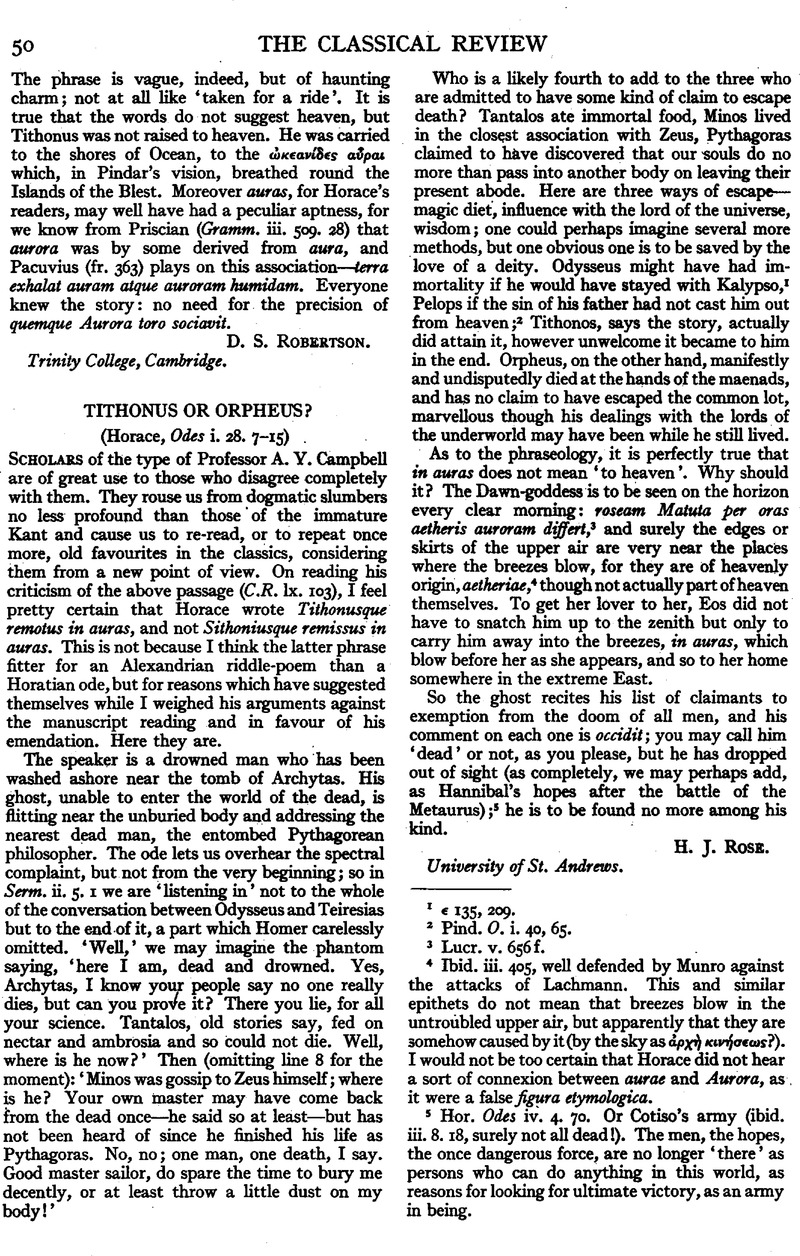No CrossRef data available.
Published online by Cambridge University Press: 27 October 2009

1 e 135, 209.
2 Pind. O. i. 40, 65
3 Lucr. v. 656 f.
4 Ibid. iii. 405, well defended by Munro against the attacks of Lachmann. This and similar epithets do not mean that breezes blow in the untroubled upper air, but apparently that they are some how caused by it (by the sky as ρχ κινσεως). I would not be too certain that Horace did not hear a sort of connexion between aurae and Aurora, as it were a false figura etymologica.
5 Hor. Odes iv. 4. 70. or Cotiso's army (ibid, iii. 8.18, surely not all dead!). The men, the hopes, the once dangerous force, are no longer ‘there’ as persons who can do anything in this world, as reasons for looking for ultimate victory, as an army in being.